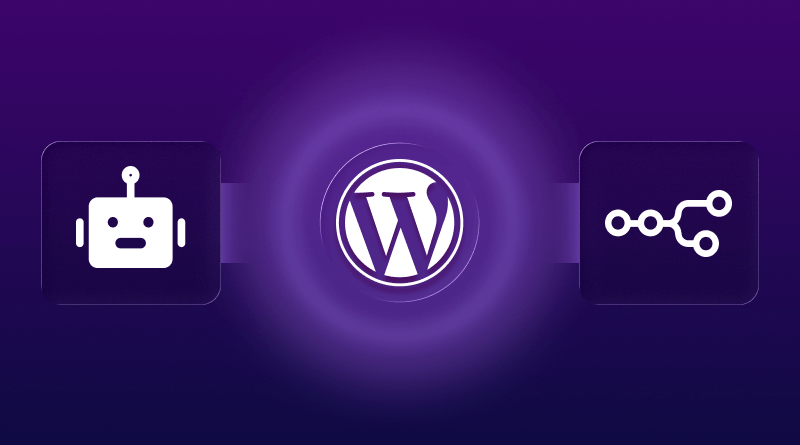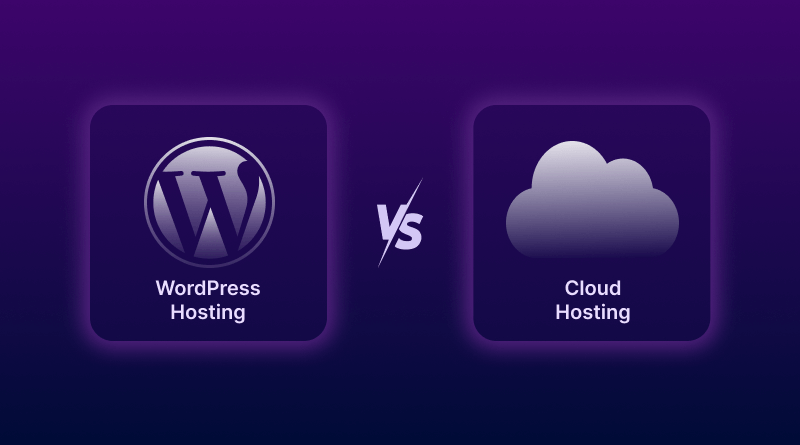
Many website owners do everything right, publish good content, target the right keywords, and build quality backlinks, yet their rankings stay stuck. What they don’t realise is that the real problem often isn’t their SEO at all, but their hosting.
Slow servers, weak uptime, and poor responsiveness quietly limit performance. Google’s Page Experience guidelines make it clear: speed, stability, and user experience directly influence rankings.
Google doesn’t rank websites based on only hosting, but hosting controls the technical signals Google uses to rank how fast your pages load, how stable your site is, and how smoothly users can interact.
This guide explains what SEO VPS hosting is, how it works, why it matters, and how it can help your website rank better in a simple, beginner-friendly way.
What Is SEO VPS Hosting?
SEO VPS hosting is a virtual private server specially optimized for search performance. It gives your site dedicated CPU, RAM, and storage, so it loads faster and stays stable even during traffic spikes.
The difference from a normal VPS is in the optimization:
- Better server response times
- Clean and isolated IPs
- Geo-optimized server locations
- Reliable uptime
- Faster storage (SSD/NVMe)
- Search-friendly server setup (NGINX/LiteSpeed, caching layers)
According to Google’s documentation on performance, server-side speed and resource availability are core factors that influence page load reliability.
How Does SEO VPS Hosting Work?
To understand what SEO VPS hosting is and how it works, imagine giving your website its own private room instead of sharing a crowded hall.
1. Dedicated resources, stable performance
On shared hosting, 100+ websites share the same CPU and RAM. If one gets heavy traffic, everyone slows down.
A VPS isolates your resources, so your site stays consistently fast.
Real-world stat:
Google recommends keeping your server response time (TTFB) under 200 ms.
Shared hosting often sits at 600–1200 ms, while VPS easily hits 150–250 ms.
2. Clean, private IP means better trust
Shared hosting often puts many sites, sometimes spammy ones, on the same IP.
A private IP protects your reputation and can prevent issues like email spam flags.
3. Faster speed & Core Web Vitals
A VPS improves:
- TTFB
- LCP
- Caching behavior
- Server processing time
These directly influence Google’s page experience score.
Google Data:
A website that improves LCP from 3s to 1.8s can see up to 20–30% better user engagement, which indirectly improves rankings.
For example, a simple WordPress blog moved from shared hosting to a mid-range VPS can reduce its TTFB from over 800ms to under 200ms, which is enough to change its Core Web Vitals from ‘Needs Improvement’ to ‘Good. In short:
SEO VPS hosting works by giving your site more power, better isolation, and a cleaner environment, making it easier for search engines to reward you with better visibility.
Does Hosting Actually Matter for SEO?
In real audits, slow hosting is one of the most common technical issues found in underperforming websites
Google has publicly confirmed that page speed, uptime, security, and user experience influence search performance. Slow hosting, frequent downtime, or distant server locations can hurt your rankings even if your content is great.
Hosting impacts SEO through:
- Speed: Faster servers mean better Core Web Vitals.
- Stability: Sites that go down often lose crawlability and trust.
- Security: Safer hosting protects against malware penalties.
- Server location: Closer hosting improves local SEO & latency.
A study by Portent found that each additional second of page load time can reduce conversions by up to 20% and Google ranks high-converting, fast-loading sites better.
Pro tip:
If you use automation tools like n8n, you’ll get even better performance with our n8n-optimized VPS.
What Is the Difference Between SEO Hosting and SEO VPS Hosting?
Many beginners get confused between the two, but the difference is actually simple. SEO hosting is mainly used when someone wants multiple Class-C IP addresses for managing many sites. SEO VPS hosting is used when someone needs more speed, power, and dedicated resources to improve performance and support SEO.
In short, SEO hosting provides multiple IP addresses, while SEO VPS hosting offers improved speed, control, and ranking-friendly performance.
Why SEO VPS Hosting Helps You Rank Better
There are many benefits of an SEO-optimized VPS for rankings, mainly because it provides your website with increased speed, stability, and control. Here are the key reasons in simple terms:
- Faster Website Speed (Core Web Vitals)
An SEO VPS makes your site load faster because it improves:
- TTFB (server response time)
- LCP (page loading speed)
- Caching performance
Better Core Web Vitals directly support higher rankings.
- Better Uptime & Reliability
Your site doesn’t slow down or crash because you’re not sharing resources.
No shared server overload, more consistent uptime, fewer SEO issues.
- Improved Security & Trust:
SEO VPS hosting gives you:
- A clean, private IP
- Stronger isolation
- Better protection for HTTPS and server security
A safer website builds more trust with users and search engines.
- Better Server Location for Local SEO
When your server is closer to your visitors, your pages load faster.
Lower latency means better user engagement means stronger local SEO signals.
How to Get Multiple Class-C IPs With SEO VPS Hosting
Many people search for “how to get multiple Class-C IPs for SEO hosting,” and the answer is simple: you get them through an SEO-optimized VPS plan. A VPS allows you to add clean, dedicated IPs from different network ranges, so each website stays separated.
What Are Class-C IPs in Simple Words?
Class-C IPs are just different IP ranges.
If two sites use different Class-C IPs, search engines see them as separate, unrelated websites.
Why SEOs Want Multiple Class-C IPs
- To keep websites isolated
- To avoid SEO footprints
- To manage multiple projects safely (PBNs, agencies)
- To protect IP reputation
Example:
If five sites share the same IP range, Google may connect them.
If they’re on different Class-C IPs, they appear independent.
How a VPS Helps You Get These IPs
With an SEO VPS, you can:
- Request extra dedicated IPs
- Add IPs from different Class-C blocks
- Assign each domain its own clean, isolated IP
Most providers let you add more IPs during setup or by contacting support.
What You Should Avoid
- Cheap or recycled IPs
- Providers selling fake “IP diversity”
- IPs mixed with spammy websites
- Shared IPs when you need isolation
Important Note:
Google does not rank sites higher just because they use Class-C IPs.
The benefit is mainly safer multi-site management and cleaner backlink footprints.
In short:
An SEO VPS is the safest and easiest way to get multiple Class-C IPs without exposing your websites to risk.
Checklist: What to Look for in an SEO-Optimized VPS
- NVMe SSD or high-performance storage for faster load times.
- Dedicated CPU and RAM resources so your site isn’t slowed by other users.
- Clean, isolated IPs and support for multiple C-class IP blocks.
- Global server location options and multi-geo data-centres to reduce latency.
- Full root access or equivalent control so you can install or optimise your stack.
- Speed-optimised server stack (LiteSpeed / NGINX / PHP-FPM) and built-in caching tools (Varnish / Redis).
- Strong backup policy, uptime guarantee, and DDoS/protection features for reliability.
This is exactly what BigCloudy’s SEO VPS hosting plan covers: everything you need for an SEO-friendly hosting foundation.
| Feature | Shared Hosting | SEO Hosting | SEO VPS Hosting |
|---|---|---|---|
| Speed | Slow to medium (shared resources) | Medium (IP-focused setup) | Fast and consistent: NVMe SSD + optimized server stack |
| SEO Value | Low (limited performance) | Medium (multiple Class-C IP options) | Better TTFB, uptime, speed & clean IPs |
| Resources | Fully shared CPU & RAM | Shared with additional IP features | Dedicated CPU & RAM with scalable performance |
| IP Isolation | Shared public IP | Multiple Class-C IPs | Clean, private dedicated IP + optional multi Class-C IPs |
| Best For | Beginners & small websites | Agencies, PBNs | Ranking-focused sites, blogs, e-commerce, local businesses |
Who Should Use SEO VPS Hosting?
SEO VPS hosting is ideal for:
- Bloggers need faster load times to rank longer articles.
- Local businesses improve location-based rankings.
- Agencies manage many high-performance sites.
- E-commerce stores need uptime, security, and speed.
Is SEO VPS Hosting Worth It?
SEO VPS hosting is worth it if you want faster speeds, better uptime, and improved security to boost your website’s search rankings. It’s ideal for growing blogs, businesses, and e-commerce sites that rely on SEO. For new or low-traffic sites, simpler hosting may suffice. Fast, stable hosting supports all other SEO efforts for long-term success.
FAQs:
Yes. VPS hosting improves SEO by giving your website dedicated CPU, RAM, and storage, which makes your pages load faster and more consistently. Better speed, uptime, and server performance lead to better Core Web Vitals, and those signals help Google rank your site higher.
Website speed directly affects SEO because it impacts Core Web Vitals like TTFB and LCP. Faster pages lead to better user experience, lower bounce rates, more engagement, and better crawl efficiency, all of which influence search rankings.
SEO VPS hosting is a virtual private server that’s optimized for search performance. It gives your website dedicated resources, clean IPs, faster server response, and better uptime, all of which support stronger SEO results compared to shared hosting.
Multiple Class-C IPs don’t directly boost rankings, but they help keep websites separated. This reduces footprint risks when managing multiple sites, improves IP reputation, and makes backlink setups look more natural in Google’s eyes, useful for agencies and PBN managers.
You should switch when your site grows, your traffic increases, your Core Web Vitals fail, or your shared hosting becomes slow or unstable. If uptime drops, pages load slowly, or Google crawls your site inconsistently, moving to an SEO VPS is the safest upgrade.









